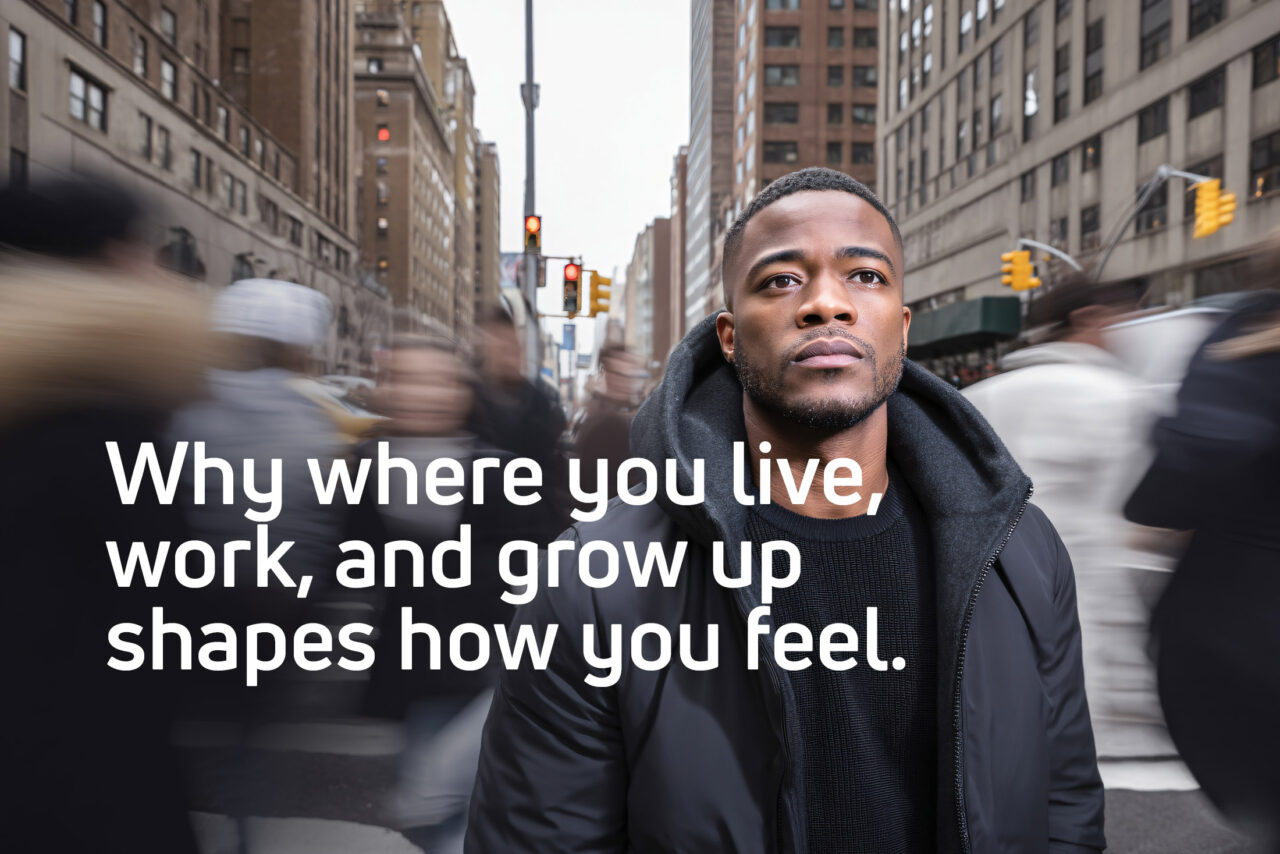Why where you live, work, and grow up shapes how you feel

We talk about “mental health” like it’s something that happens inside our heads, but honestly, it’s just as much about what’s happening around us. Your rent, your commute, your job, your support system, they all play a role. That’s what people mean when they talk about “social determinants” of mental health. It’s a fancy term for real-life stuff that affects how you feel every day.
The hidden stress
If you’re living in New York, juggling work, family, and about a hundred responsibilities, stress can sneak up on you from every direction. Maybe it’s the cost of living that never seems to ease up. Maybe it’s trying to balance career goals with family planning. Or feeling like there’s never enough time to breathe, let alone get to therapy.
Access Isn’t the Same as Support
Sure, mental health resources exist, but that doesn’t mean they’re accessible.
- It’s hard to find a therapist who actually understands your background.
- You might not have insurance that covers more than a couple of sessions.
- Or maybe you just don’t have the time between jobs, kids, and commutes.
That’s the quiet inequality no one talks about, how your zip code, paycheck, or schedule can quietly decide how much care you get.
What can you actually do about it?
Find providers who get you. Look for therapists who specialize in your issues, cultural identity, or trauma-informed care. It changes everything when you don’t have to explain the basics of your life.
- Use community and connection. Support groups (in-person or online), women’s circles, or even trusted friends can offer grounding you won’t find in an app.
- Ask for help earlier, not later. You don’t need to hit rock bottom to deserve care.
- Talk about it. Every time we’re honest, about burnout, anxiety, money stress, we chip away at the silence that keeps others from getting help.
You’re not “Too Sensitive.” You’re Human.
The truth is: it’s not you. It’s the world we’re living in, one that’s built to make us carry more and rest less. Addressing mental health isn’t just about therapy sessions; it’s about recognizing that your environment, your paycheck, your safety, and your sense of belonging all matter.
And when you start acknowledging that, and demanding better for yourself and your community, you’re already doing the work.
BCS Group accept most major insurance plans, contact us now to see if you’re covered.
718 313 4357 or go to bcsnygroup.com/appointments

